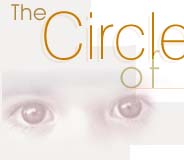


| In less than 10 hours, 12-year-old Preeti Sharma would be at London's Heathrow airport. She snuggled the teddy given to her by the ground staff in Bombay, and looked forward to her first trip abroad. |
|
Preeti Sharma knew there was more to London than
the Buckingham Palace, Madame Tussaud's and Big Ben. Much more
and far too important, like the Royal Marsden Children's Hospital
where she had an appointment with a doctor she had never met before.
It was two years since Preeti began her fight against leukaemia. She had even resumed attending school after showing a good response to her treatment in Bombay. Until she suffered a major relapse and had to be rushed to London within a fortnight. Her case papers were faxed urgently, her uncle in London fixed an appointment with the doctors, British Airways sponsored her ticket and Preeti was on her way for further treatment. Unaware of the exact nature of her sickness, Preeti knows she is ill. That the doctor could make her feel better and she could return to Bombay. Her family, with the assistance of the Cancer Patients Aid Association, a voluntary organisation, rallied together and raised Rs one million for the initial treatment. Though the entire treatment requires another Rs 3.2 million, Preeti's well-wishers are positive about raising the money. "We have sent a lot of appeal letters for her. Her uncle in London has also circulated them there, so we hope we can raise the required amount," says Kalpana Venkatraman, director, patient care and social services, CPAA. It was after British Airways came forward with its special scheme to help children affected with cancer that Preeti, and many others like her, had the opportunity to get treatment abroad. A bright beacon of hope, but there were other requirements that lay beyond the children and CPAA. "Cancer is a debilitating disease, both medically and financially," says Venkatraman. Though the airline made it possible for six kids to fly aboard its Bombay-London flight, the lack of any boarding and lodging arrangement during their stay in London has restricted the remaining children from making the trip. "The treatment and the daily expense there will amount to nearly $ 750-1000 everyday. Since the children will remain there for a minimum of three months, we are hoping we can arrange some place where these kids could stay free of cost. This way, the money that has been raised so far can be used entirely for treatment," points Venkatraman. Impeded by the non-availability of accommodation, the children who were first scheduled to leave on November 14 (children's day) are awaiting their turn. Only Preeti was luckier: her visit was made possible since her uncle lived only 15 minutes away from the hospital. "Her treatment has already begun on December 1 and they've promised to send us her reports on January 1," said Venkatraman. But, for the other five, the wait continues: Jeremiah, 7: Leukaemia Neha, 4: Leukaemia Rhea, 10: Leukaemia Huma, 1: Nerve cancer Anisha, 20: Lung cancer All gravely ill, these children are continuing their treatment in Bombay till a suitable arrangement can be made in London. Venkatraman explains that since the children are already undergoing treatment here, their visit to the Marsden Hospital is for further medical opinion on their cases. While Jeremiah and Anisha know about the disease, the others are either too young to understand or have parents who don't want to them to know the seriousness of their ailment. "An only child, Jeremiah also knows the names of his medicines and says he wants to be an oncologist when he grows up," adds Venkatraman fondly. It is an association that Venkatraman and CPAA have built through a constant interaction with the patient, his doctors and family. "The families of cancer patients tend to get very emotional," she says, "our workers pay home and hospital visits and look for means to help them." In any month, there are approximately 500 patients under the CPAA, 40 per cent of which are children. As most of its patients do not come from wealthy families, the organisation helps patients get aid from government and other subsidised institutions. Depending on the patient's prognosis, a minimum of Rs 500 is allocated to the patient. "If the chances of survival are good, we spend up to Rs 15,000-20,000 a month," adds Venkatraman. Considering the expense of medication, CPAA attempts to raise funds through donations and charitable trusts, 1000 of which are listed with them. "Donors adopt patients and see them through the entire duration of treatment." "Most of our patients come from outside Bombay. They sell their belongings for treatment which is very expensive. There are injections that cost Rs 9,000 per sitting and a patient has to often take a course of 10. Then if the patient has to go for a bone marrow transplant, it costs Rs 500,000-700,000 for one session," she adds. With gestures of help, like the one from British Airways, the organisation provides for many cancer patients unable to afford treatment by themselves. "British Airways looks for ways by which it can make a difference in people's life, and helping the CPAA was one such way," says Dina Dukle, relationship marketing -- executive club, British Airways. The airline, through its newsletter to its members, asked them to donate executive club miles to the CPAA miles fund. The airline hopes that if 5,000 members donates 2,500 miles each, 250 children suffering from cancer can be flown to London. The miles accumulated so far have enabled the airline has been able to accommodate six such children. Once the six children were selected according to their prognosis, the airline organised a small function for them. "To make these kids feel special we gave them a teddy and mock tickets for the flights. We will also send a car to pick them from their homes before the flight," adds Dukle. But even with all the help that is forthcoming, it is a battle that these children fight alone. Irrespective of all the surrounding support, their physical pain cannot be shared. Even on the day of the British Airways function, two children could were absent because one was in ICU and the other in chemotherapy. "It is painful. Intravenous injections, often administered once every three weeks, are difficult for the kids. Sometimes, suitable veins cannot be found on their hands, so they are pricked on their legs," says Venkatraman, almost wincing with pain. Venkatraman, who has worked at CPAA for the last 10 years reveals that, apart from the trauma of the disease, families have to learn to come to terms with many other problems: "If the main earning member is affected, then the whole family can fall on hard times; for children, it's their school that suffers. We have also seen many marriages coming apart because either spouse is suffering from cancer." While the organisation provides accommodation and ration for the families of patients undergoing treatment, it runs cancer detection camps in high risk population of mill workers and slums. It also runs rehabilitation centres, where it teaches the inmates to stitch and make stationery. The centre supplies products to Gurjari and the Oberoi. There are uplifting instances. Many success stories where cancer has been vanquished by medicine and a resolute human spirit. Yet behind every such triumph, there are many sad failures. And each year, CPAA comes face to face with 20-25 such failures. "We come in close contact with death and its darkness," says Venkatraman, "but when there emerges even one cancer recovery from this darkness, that is our sunshine, our reward." Meanwhile, five children wait for a good samaritan in London, to come by and touch their uncertain lives. And Kalpana Venkatraman awaits yet another chunk of sunshine ... this time, a playful one. For each child, even if stricken with cancer, deserves a chance for a better tomorrow. Page design: Lynette Menezes Tell us what you think of this feature
|